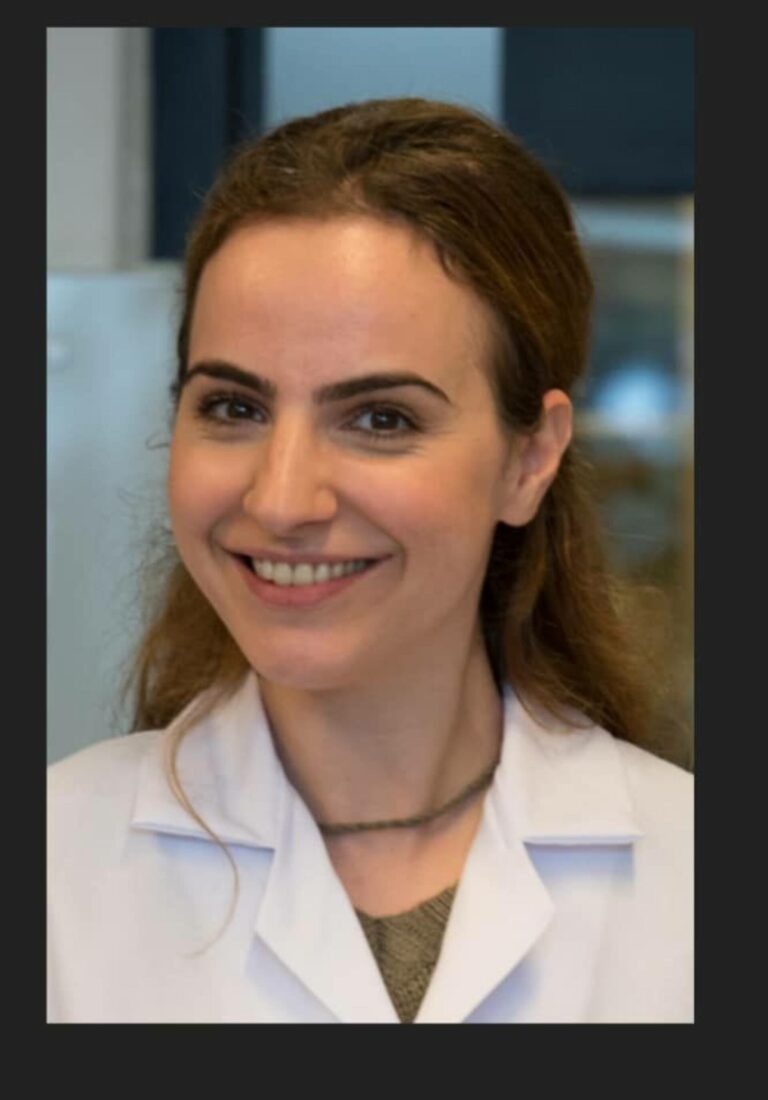During the pandemic, a baffling mystery remained at the forefront of people’s thoughts, leaving almost everyone, pondering the same question: why do some COVID-positive cases have symptoms while others, known as asymptomatic, show no signs at all?
Dr Dimitra Chatzileontiadou, a researcher specialising in anti-viral immunity, was deeply intrigued by the enigma of coronavirus, and its impact on the immune system.
“I was fascinated by this new virus, and I wanted to understand the immune system actions when facing a SARS-CoV-2 infection,” Dr Chatzileontiadou told Neos Kosmos.
Connecting the dots between Covid-19 and immunity
Dr Chatzileontiadou, Professor Gras, and PhD student Lawton Murdolo from La Trobe University joined forces with the research team from the University of California San Francisco. Their collective efforts led to a significant discovery – uncovering a genetic basis for strong immunity against the virus, which holds promise for potential advancements in vaccines and treatments.
“Our research uncovered the first genetic link with asymptomatic COVID infection” emphasized Chatzileontiadou, noting that their study focused on asymptomatic infection and provided valuable insight into “how the immune system promotes rapid viral clearance,” allowing “individuals to stay healthy despite being infected.”
Their discovery found that people carrying the Human Leukocyte Antigen (HLA)-B15:01 gene, have important T cells in their immune system that can recognise a specific “part of the Spike protein shared by both the SARS-CoV-2 virus and seasonal coronaviruses responsible for the common winter cold,” and can target the infected cells.
Chatzileontiadou explained that “the ‘protective’ nature of HLA-B15 lies in the fact that people who carry this gene might have high levels of pre-existing memory T cells that recognise SARS-CoV-2,” suggesting that this genetic trait could potentially lead to stronger immune response upon exposure to SARS-CoV-2, limiting COVID-19 disease symptoms.
She added that the study’s results carry significant implications “for understanding the mechanism underlying early viral clearance and may lay the groundwork for refining vaccine development and therapeutic options.”
The research, led by Professor Jill Hollenbach and Dr Danillo Augusto at the University of California San Francisco (UCSF), as well as many other researchers and institutions “is part of a global study,” investigating the genetics and COVID-19 symptoms of “almost 30,000 registered bone marrow donors,” who participated “in a voluntary program to track COVID-19 infection and symptoms.”

Navigating borders and emotional toll amidst COVID
Unable to visit her family in Greece due to “international borders closure,”Chatzileontiadou expressed how “the uncertainty of the borders reopening,” took a toll on her emotional well-being.
“The fact that I was “locked” in Australia without seeing my family for two years and the uncertainty of the borders opening again made me feel depressed for a long period of time even considering leaving my work in Australia and returning to Greece,” she shares.
However, the strong bonds and connections formed in Australia, ultimately kept her in place.
Born and raised in Kastoria, a city in northern Greece, the 36-year-old researcher arrived in Melbourne in 2017, for her postdoctoral research, with the “initial plan” of staying in Australia for “a couple of years,” before returning to Greece.
After six years, she admits that her choice to stay in Melbourne was driven by the “fantastic work environment,” the support of her “wonderful boss (Professor Stephanie Gras),” her work colleagues and friends, along with her “wonderful partner.”
Despite living worlds apart, she remains connected to her homeland, making sure to visit her “close friends and family” there “once a year.”
Next year’s visit to Greece holds special significance as she plans to marry her soulmate and soon-to-be father of her child, in the country that holds her heart close.
A scientific success built on family values
Chatzileontiadou is a postdoctoral research fellow at La Trobe University who is currently working in the Department of Biochemistry and Chemistry at the La Trobe Institute for Molecular Science.
In 2009, she earned a bachelor’s degree in Molecular Biology and Genetics from Democritus University of Thrace in Greece, followed by a master’s degree at the University of Thessaly, specializing in Molecular Biology and Genetics with a focus on diagnostic markers.
During her Master’s, she conducted research at the Structural and Functional Biochemistry laboratory, mentored by Professor Nikolaos Balatsos.
She continued her academic journey by completing her doctoral studies at the same laboratory, delving into biochemical studies of human Angiogenin, under the guidance of Prof. Demetrios Leonidas.
Her exceptional accomplishments culminated in the award of a PhD with distinction in November 2016, along with the prestigious IKY Fellowship for excellence in postgraduate studies in Greece – SIEMENS program 2017, which allowed her to serve as a research fellow in the same laboratory for a year.
In October 2017, she made the move to Australia, embarking on her postdoctoral research fellowship at Monash University before transitioning to her current role at La Trobe University.
Presently, she is a valued member of Prof. Stephanie Gras’s laboratory, where she has been dedicatedly working since 2021.
Throughout her scientific success, she remains grateful for her family’s unwavering support recognising how the values they instilled, shaped her into the person she is today.
“My family and my amazing friends taught me how to believe in myself, how to respect people that are different than me, not to be afraid to set goals and chase my dreams even when they seem unachievable. I owe them all my personal and professional successes.”









